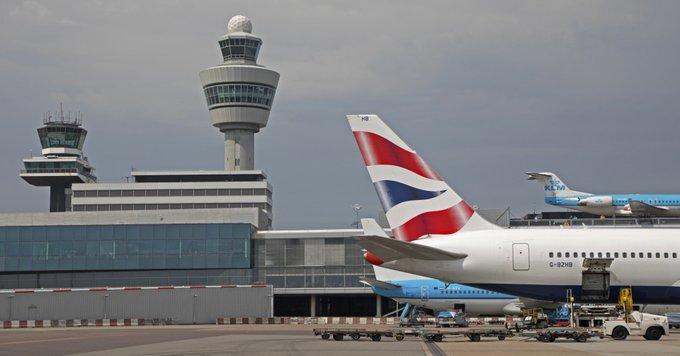Op-Ed: Government Promises To Follow The Evidence Must Be More Than Good Intentions

As the UK negotiates its exit from the European Union (EU), the aerospace industry has been clear we need a comprehensive deal that protects our global market access, jobs, connectivity, and most of all passenger safety.
Continuing our participation in the European Aviation Safety Agency (EASA) is industry’s top priority, as it has been throughout the Brexit process. Participation in EASA has already contributed to ever-improving safety standards in aviation, given us influence in one of the two major global regulators, and eased access to our export markets, not just in Europe but around the world.
Companies of all sizes, from the biggest names in international aerospace to the innovative start-ups developing cutting edge urban air vehicle technology are clear that EASA is the best option for the UK.
This industry is worth £36 billion ($47 billion) a year to the UK and employs 111,000 people in highly skilled jobs in every part of the UK. Our centers of manufacturing are the basis of prosperity to communities—including in Wales where Airbus makes wings for all its aircraft models, Northern Ireland where one third of the world’s aircraft seats are made, and the Midlands base of Rolls-Royce, a world leader in civil and military aircraft engines. Aerospace manufacturing is found in every part of the country from the Isle of Wight to Scotland and generates exports on a scale that few can match.
Our sector is now focused on the challenge of creating a new generation of green aircraft technology to achieve net zero in the sector by 2050. Success can bring thousands of new highly skilled jobs to the UK’s nations and regions in the decades ahead, if the industry remains attractive to investment.
When they have listened, the Government has heard from us, from our companies and from our largest international investors how important EASA membership is to our future ability to attract investment, sustain our manufacturing base and generate new growth.
Ministers including Michael Gove and Nadhim Zahawi have told us in recent weeks that the Government would be led by the evidence and was open to continuing our EASA membership. They have spoken of their intention to consult industry on our future relationship with the EU.
Before that consultation has begun, the Transport Secretary announced on Friday Mar. 6 that the UK will leave EASA and create its own regulatory system under the Civil Aviation Authority (CAA).
By doing so, the Government will be incurring substantial cost to build up the capabilities of the CAA, match the standards required for recognition by EASA and the Federal Aviation Administration in the U.S. It will be gambling that companies can absorb the additional costs and complication created by regulatory divergence without an impact on their future investment in the UK, and that disruption will have no impact on safety. This is a gamble with much at stake, but without any clear prize on offer.
A better, more ambitious alternative is available. The Government has set out its approach to the negotiations. Full and meaningful consultation with industry on delivering its goals can support creative solutions being found that ensure arbitration arrangements are in place that avoid any need for recourse to the European Court of Justice, while also meeting the needs of the companies responsible for providing thousands of vital manufacturing jobs.
While EASA membership affects the UK aviation and aerospace industries, other sectors will be similarly put at risk by unnecessary and unwanted divergence in their areas. This is why we and the representatives of the UK’s chemicals, pharmaceuticals, automotive and food sectors set out our concerns over the risks of divergence to Government in the autumn.
If we are to achieve a successful outcome to the trade talks now just beginning, industry needs arrangements based on evidence, not on ideology. This is the approach that Government has said it will follow, but the test is now in whether it will deliver on its commitments and listen to the experts in sectors that hold the key to delivering its ambition to level up.
—Paul Everitt is the chief executive of ADS, the UK trade organization representing the aerospace, defense, security and space sectors, with more than 1,100 member businesses.